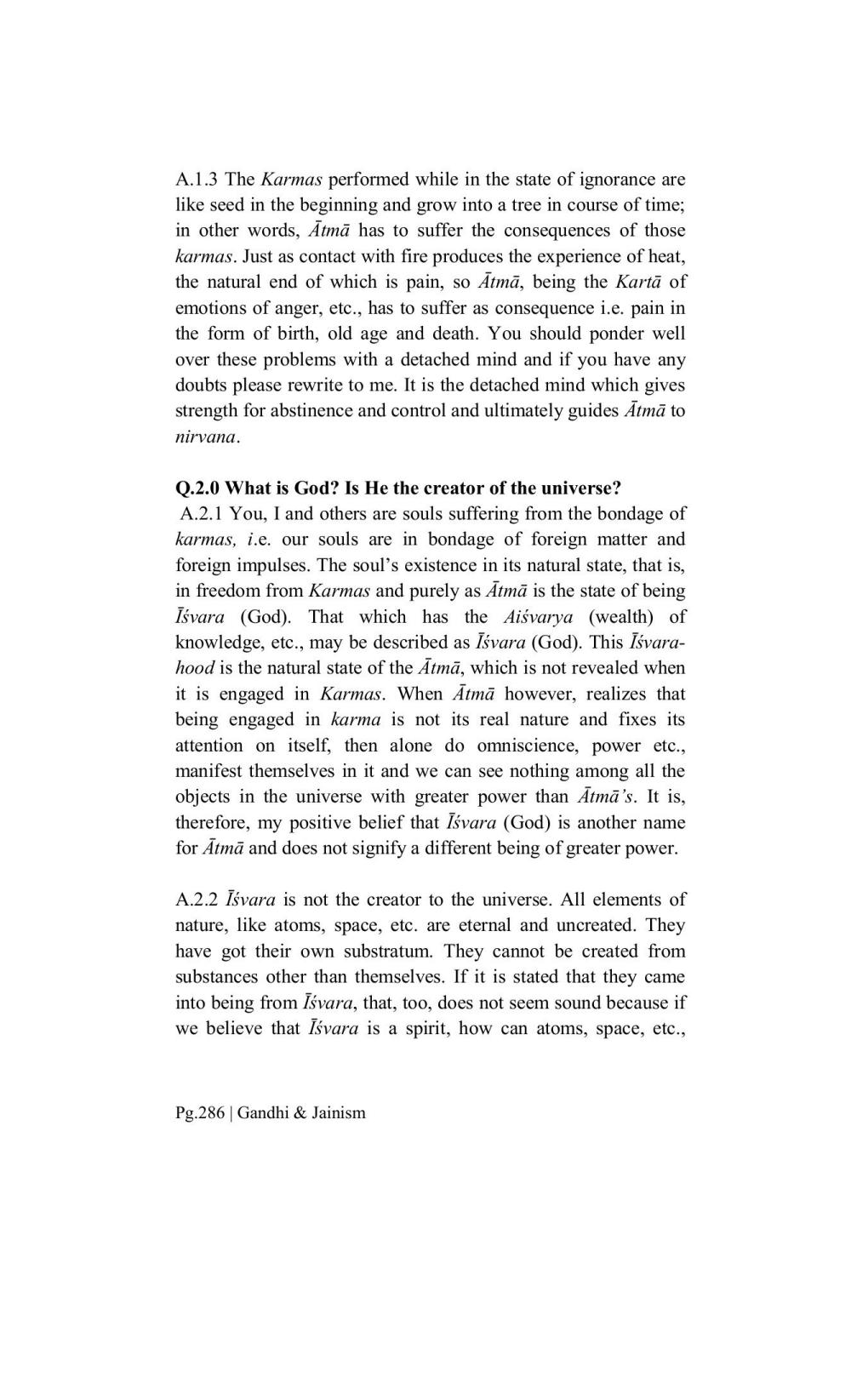________________
A.1.3 The Karmas performed while in the state of ignorance are like seed in the beginning and grow into a tree in course of time; in other words, Atmā has to suffer the consequences of those karmas. Just as contact with fire produces the experience of heat, the natural end of which is pain, so Atmā, being the Kartā of emotions of anger, etc., has to suffer as consequence i.e. pain in the form of birth, old age and death. You should ponder well over these problems with a detached mind and if you have any doubts please rewrite to me. It is the detached mind which gives strength for abstinence and control and ultimately guides Ātmā to
nirvana.
Q.2.0 What is God? Is He the creator of the universe? A.2.1 You, I and others are souls suffering from the bondage of karmas, i.e. our souls are in bondage of foreign matter and foreign impulses. The soul's existence in its natural state, that is, in freedom from Karmas and purely as Atmā is the state of being Isvara (God). That which has the Aiśvarya (wealth) of knowledge, etc., may be described as Isvara (God). This Isvarahood is the natural state of the Atmā, which is not revealed when it is engaged in Karmas. When Atmā however, realizes that being engaged in karma is not its real nature and fixes its attention on itself, then alone do omniscience, power etc., manifest themselves in it and we can see nothing among all the objects in the universe with greater power than Atma's. It is, therefore, my positive belief that Iśvara (God) is another name for Atmā and does not signify a different being of greater power.
A.2.2 Isvara is not the creator to the universe. All elements of nature, like atoms, space, etc. are eternal and uncreated. They have got their own substratum. They cannot be created from substances other than themselves. If it is stated that they came into being from Isvara, that, too, does not seem sound because if we believe that Iśvara is a spirit, how can atoms, space, etc.,
Pg.286 | Gandhi & Jainism




